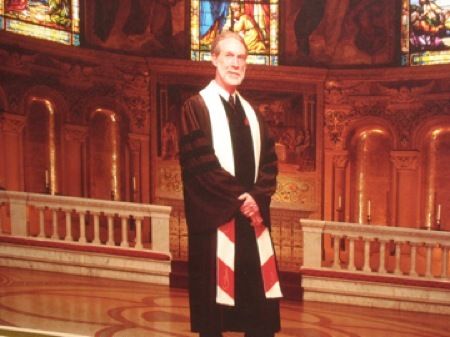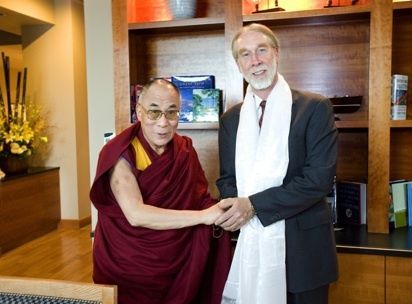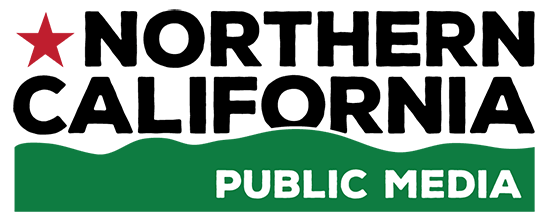Cynthia is a young leader, one of 10 who worked with KRCB's Voice of Youth to produce "The Crisis At Home– Youth Engage the Community on the Economy." In this excerpt, she introduces a segment of the film that moved her.
Jeanette helps others. But years ago, she was in need herself. Today, Jeanette works tirelessly to ensure that others do not have to endure the difficulties she once encountered first-hand.
[video:http://www.youtube.com/watch?v=q6dHiEWGnpU 320x240]
Watch the entire film, Monday, December 28th at 7:30pm, on KRCB-TV.
 To the Rev. Scotty McLennan, Jesus was a man who told stories and spoke in metaphors, who respected the science of his day, and who emerged from his mystical sojourn in the desert with a radical message about the power of love.
To the Rev. Scotty McLennan, Jesus was a man who told stories and spoke in metaphors, who respected the science of his day, and who emerged from his mystical sojourn in the desert with a radical message about the power of love.
{mp3remote}http://media.krcb.org/audio/nbr/5-19-09.mp3{/mp3remote}
The Rev. Scotty McLennan is the dean for religious life at Stanford University. He was the university Chaplain at Tufts University from 1984 to 2000, and senior lecturer at the Harvard Business School for ten of those years. McLennan received his B.A. from Yale University in 1970 as a Scholar of the House working in the area of computers and the mind. He received his M.Div. and J.D. degrees from Harvard Divinity and Law Schools in 1975. In 1975, he was also ordained to the ministry (Unitarian Universalist) and admitted to the Massachusetts bar as an attorney. He is the author of Finding Your Religion and was the inspiration for Doonesbury's Rev. Scott Sloan.

Some of the most heated issues in contemporary American society revolve around questions of science, from evolution to stem cell research. The Rev. Scotty McLennan says he sees no conflict between science and faith, and just as he doesn't believe Jesus did.
{mp3remote}http://media.krcb.org/audio/nbr/sciencethen.mp3{/mp3remote}
Jesus taught tolerance, McLennan believes, but following that teaching in the face of the adamantly pejorative beliefs of others is a challenge.
{mp3remote}http://media.krcb.org/audio/nbr/tolerance.mp3{/mp3remote}

 The sounds of the natural world are changing, and not for the better. Bernie Krause (left) has tapes that document that trend.
The sounds of the natural world are changing, and not for the better. Bernie Krause (left) has tapes that document that trend.
 While Krause has been recording and tracking the changes in aural environments around the world over the past several decades for his business, Wild Sanctuary, he has also been observing the concurrent changes in the soundscape around his Glen Ellen home. And he’s been astonished by what he’s found.
While Krause has been recording and tracking the changes in aural environments around the world over the past several decades for his business, Wild Sanctuary, he has also been observing the concurrent changes in the soundscape around his Glen Ellen home. And he’s been astonished by what he’s found.
Just as the soundscapes have been changing over time, so has the recording equipment Krause uses. Digitization, he says, has made his professional life much easier.

Ten teenagers from Santa Rosa, California-based Community Action Partners explore the impact of the national economic crisis on our local communities. These young "citizen journalists" explore a wide range of topics such as housing, food, and unemployment, and meet many individuals facing these unprecedented challenges.
[video:http://www.youtube.com/watch?v=eYNgHXvyGhU 426x240]
Watch Monday Night at 7:30 p.m. on KRCB-TV

You have to get up pretty early to capture the pure sounds of nature… and get a long way away from the rest of the noisy human race.
![]()
Gina Farr of Wild Sound Stories in Marin County finds a poignant significance in these recent recordings, because the changes they document tell a story of losses that will not be recovered.
This is one of her summer 2009 recordings of birds in the Grand Tetons of northwest Wyoming:  Tom Rusert, an avid birdwatcher and the volunteer director of Sonoma Birding, joined in the June workshop to see firsthand how the sounds now increasing featured in birding guides were being collected.
Tom Rusert, an avid birdwatcher and the volunteer director of Sonoma Birding, joined in the June workshop to see firsthand how the sounds now increasing featured in birding guides were being collected.
Hundreds of shorebirds were covered in oil after the Cosco Busan oil spill in the San Francisco Bay. Many died, but some were saved. Here, International Bird Rescue Association volunteer Tom Rusert releases one of the very first stricken shorebirds back into the wild after being cleaned.

 Live Radio
Live Radio